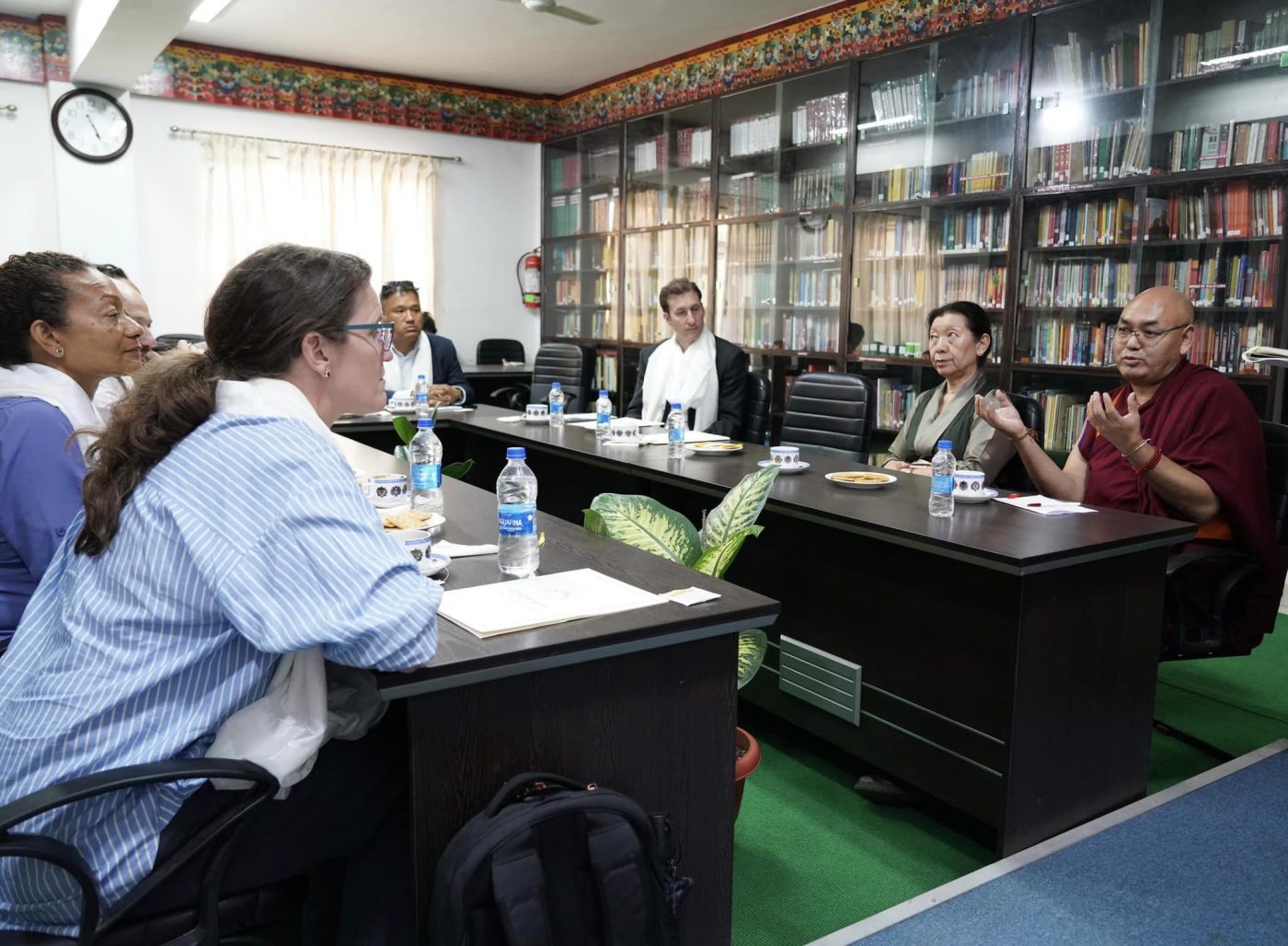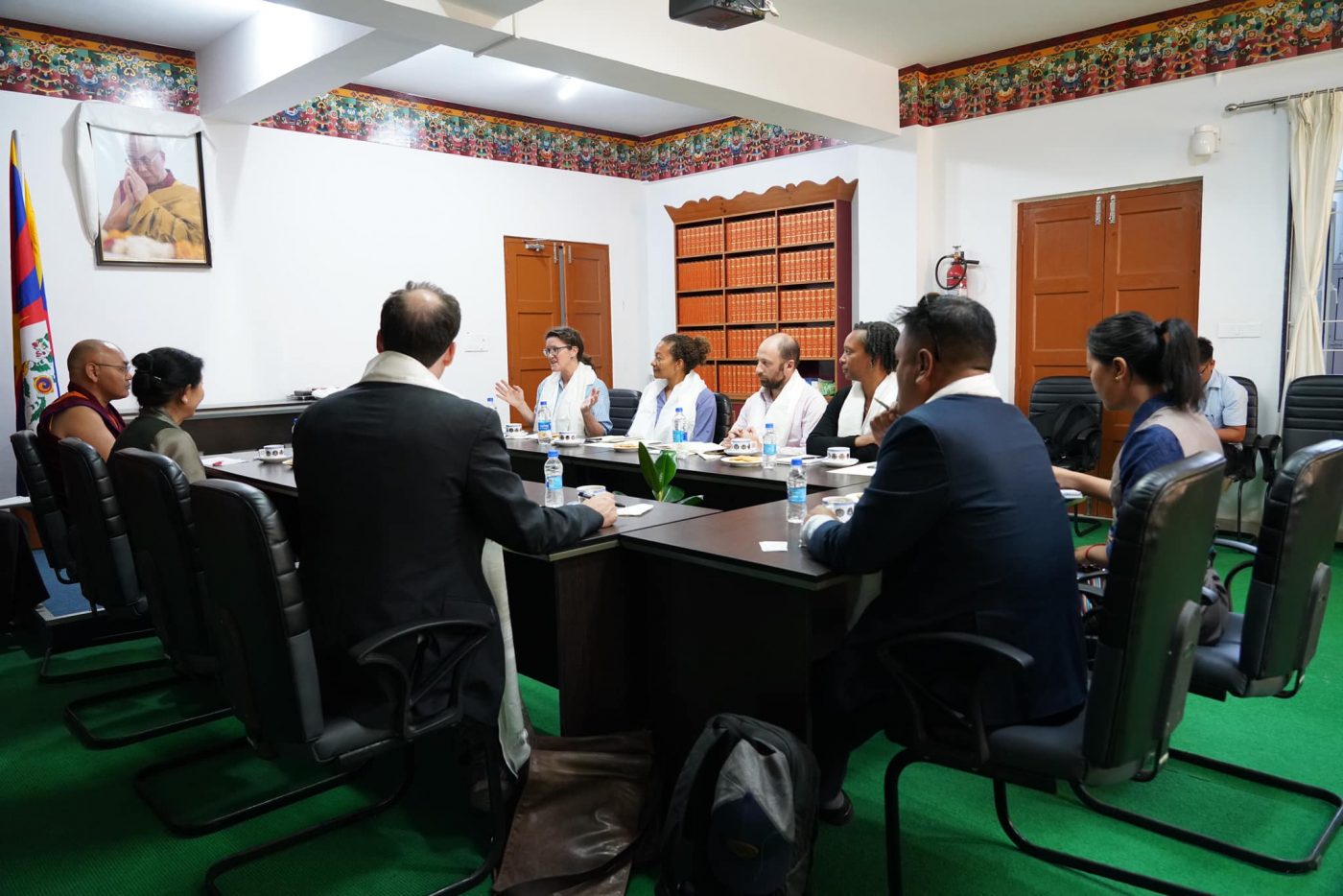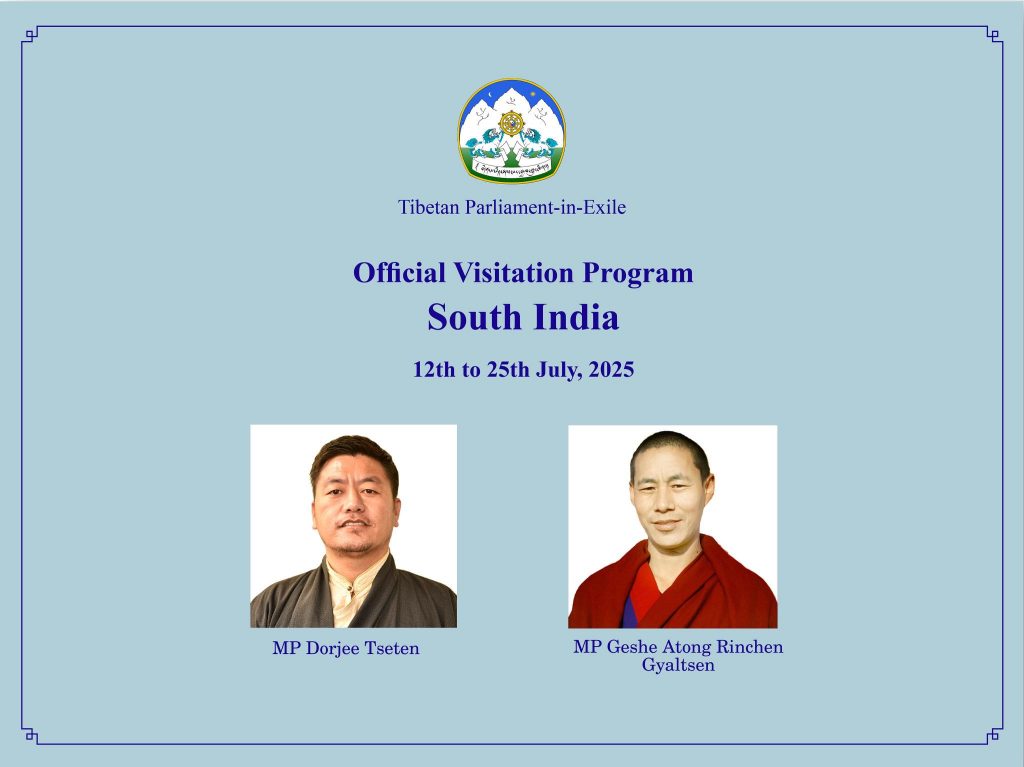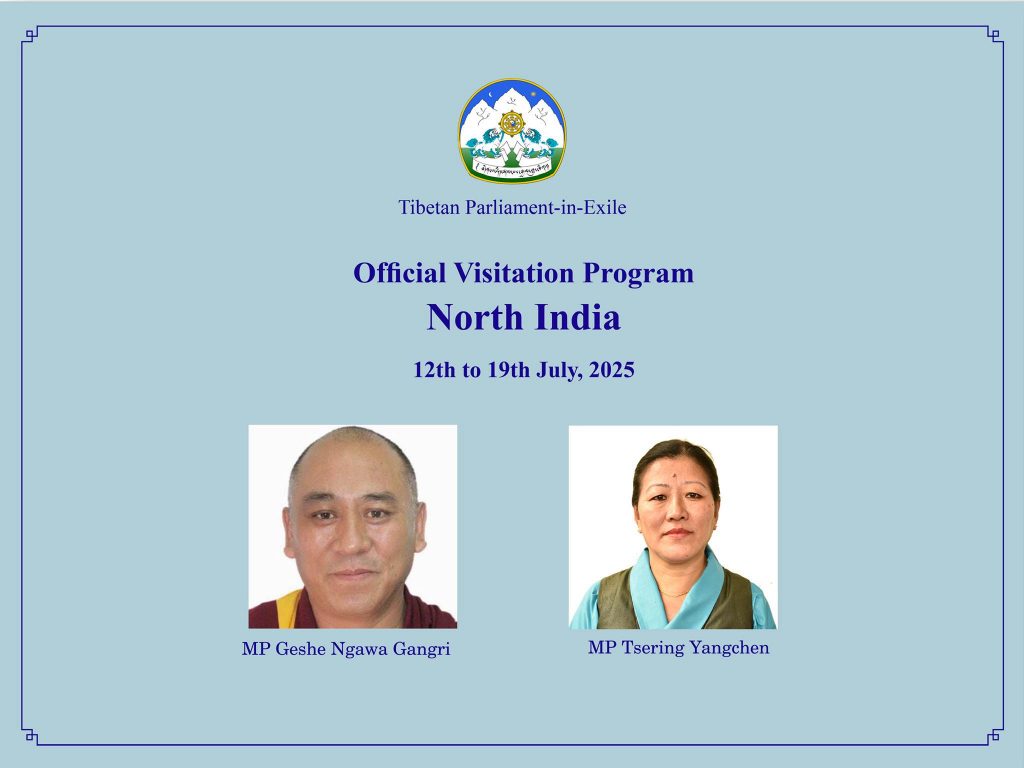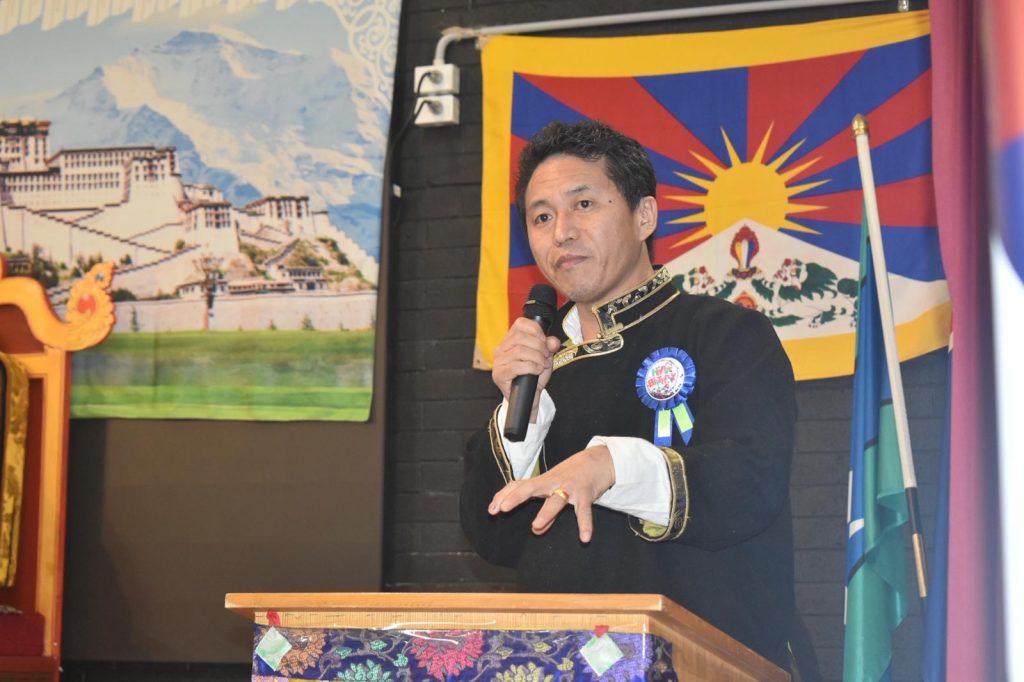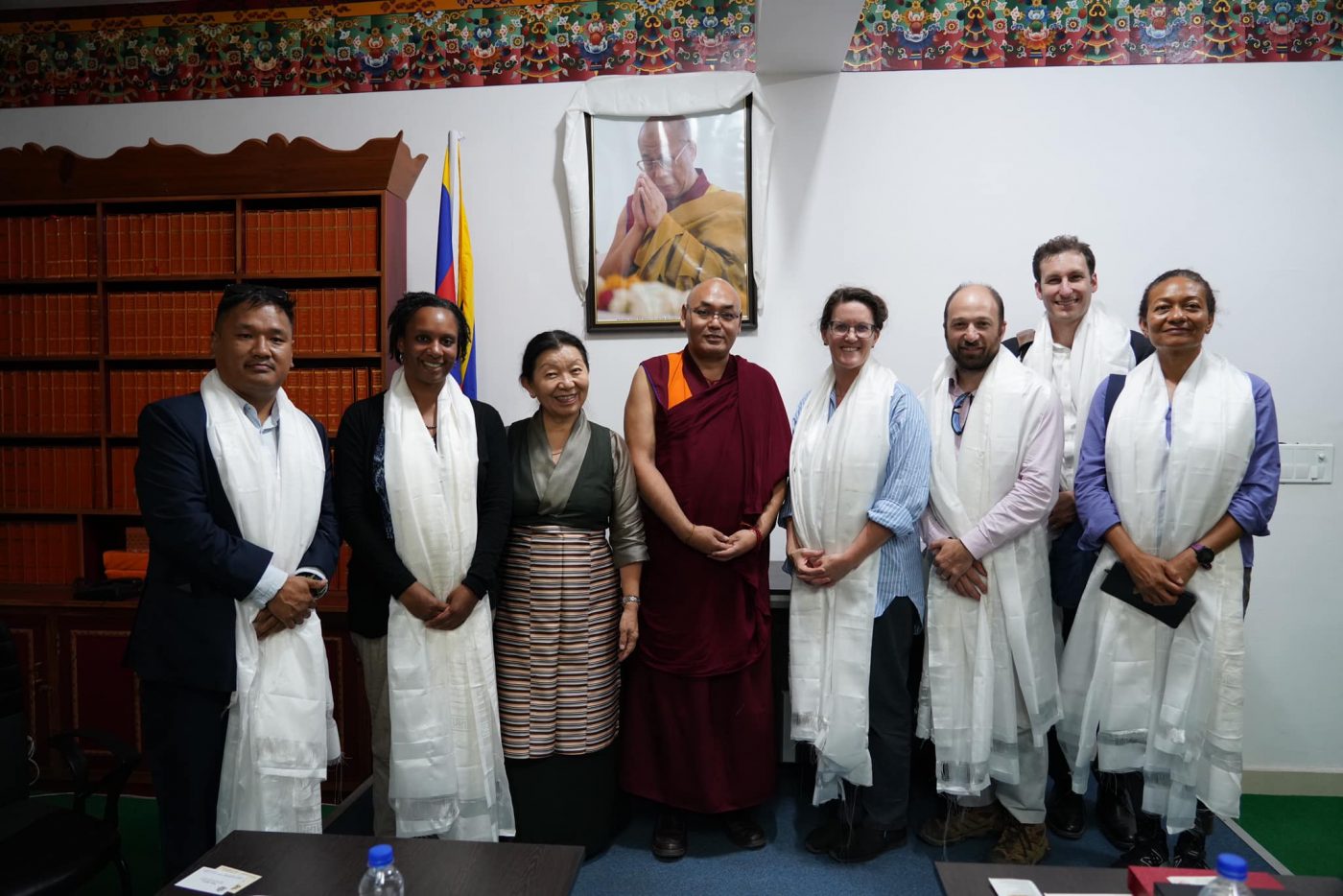
Dharamshala, 5th October 2023: PRM delegation consisting of Janine Wynne, Deputy Assistant Secretary (DAS); Katherine Perkins, Acting PRM/EAP (East Asia Pacific)-SCA (South Central Asia) Director; Denis Test, PRM South Asia Unit Lead; Makenzie Rowe, Regional Refugee Coordinator for South Asia; Andrew Chapman, Political Officer of the U.S. Embassy, Delhi; and Pema Tenzin, Regional Refugee Affairs Specialist of the U.S. Embassy, Kathmandu, visited the Tibetan Parliament-in-Exile today.
The PRM delegation met with Speaker Khenpo Sonam Tenphel, and Deputy Speaker Dolma Tsering Teykhang. They had a very productive meeting discussing the process of proposing and sanctioning of the CTA’s budget and its implementation at the grassroot level.
DAS Janine Wynne introduced PRM’s work in India and Nepal and assured their commitment to continue supporting the Tibetans.
The Deputy Speaker informed the PRM delegation that their contribution has been fully implemented at the grassroot levels of the Tibetan community and has provided significantly fruitful results and benefited the most vulnerable ones.
Upon inquiring about the allotment and prioritizing of the CTA budget, the Deputy Speaker explained how each department prepares its budget in consultation with their offices and submit the final estimated budget to the Department of Finance. That will be sent to Kashag for review and then to the Budget Estimate Committee of the TPiE for review. During the budget session, the Finance Minister would present the budget and the Chair of the Budget Estimate Committee would present its report, followed by budget approval by the parliament.
The Deputy Speaker also answered their questions on how the TPiE communicates with Tibetan diaspora on their need and aspiration by explaining the parliament’s periodical visitation programs to Tibetan settlements and scattered communities in India, Nepal, and Bhutan to address their grievances and concerns. She also explained how the Central Tibetan Administration is innovating ways to sustain Tibetan settlements by providing the youths with opportunities of different prospects of career and empowering them with needed skills.
The Speaker clarified that Tibet’s issue is not just about political issues but also about protecting Tibet’s distinct language, religion, and cultural heritage and added that the Tibetan diaspora has been very successful in preserving Tibetan’s distinct identity.
He also said that over the past more than 6 decades, Tibetans in exile have received international support, especially from India, the USA, and others for which the Tibetans are forever grateful.
